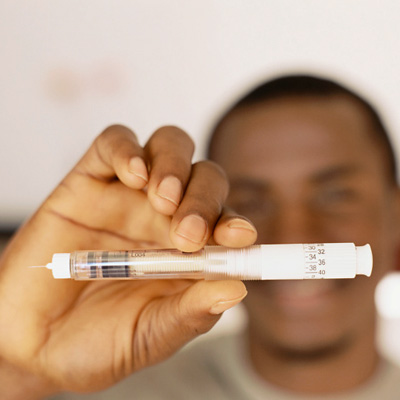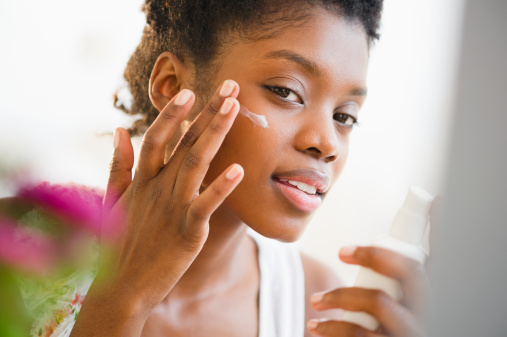ED relief
Treatment for men unable to have an erection took a great leap forward when the first oral erectile dysfunction (ED) medication, Viagra (sildenafil), was introduced in 1998. But there have been strides recently in a host of other ED treatments, ranging from over-the-counter pumps to surgical implants and suppositories.
Diagnosing your own ED is not a good idea, however. If you have trouble getting an erection, it’s important to see a doctor before pursuing any sort of treatment. There could be a medical explanation for your condition, and your health and sexual history may come into play.
1. Pills
Viagra, Cialis (tadalafil), and Levitra (vardenafil) fight erectile dysfunction by relaxing smooth muscle in the penis, a process that increases blood flow and enables an erection.
The effectiveness of these phosphodiesterase type 5 (PDE-5) inhibitors is well documented. “ED drugs are 70% effective in allowing the penis to achieve hardness for sexual activity,” says Irwin Goldstein, MD, director of San Diego Sexual Medicine and the editor in chief of The Journal of Sexual Medicine.
And the pills are generally considered safe. Side effects can include headaches, sinus congestion, indigestion, and blue vision, but all are usually mild. “They’re some of the safer drugs on the planet,” says Dr. Goldstein.
If you’re on ED drugs, don’t take nitrates—such as nitroglycerine pills for chest pain or the recreational drugs known as “poppers.” The combination can lower blood pressure to dangerous levels and can even cause a heart attack.
2. Injections
If oral medications don’t work, a doctor might recommend injecting medication directly into the base or the side of the penis with a tiny needle or inserting a suppository into the urethra.
The injectable drug alprostadil is a synthetic version of prostaglandin E1, a hormone-like substance that functions similarly to ED pills. Some injections mix alprostadil with other medications—such as the vasodilator papaverine and the alpha-blocker phentolamine—to increase its effectiveness.
Your doctor can teach you to perform the injections yourself at home.
3. Suppositories
For guys who prefer not to inject themselves or have a fear of needles, a suppository called MUSE—containing the drug alprostadil—is also available, though it is not considered as effective as the shots. “The injection is a direct delivery of medication to the penis, while the suppository is inserted into the urethra and when it is absorbed, it loses some of its strength,” says Ridwan Shabsigh, MD, director of the division of urology at Maimonides Medical Center and professor of clinical urology at Columbia University in New York City.
Both methods have the same primary complaint: Men using injections or MUSE often say they take away from the spontaneity of sex because it takes time to prepare and administer the medications.
4. Pumps
Penis vacuum pumps get a good laugh in the Austin Powers films, but they happen to be quite effective at increasing blood flow to the penis and they’re available over-the-counter at relatively low cost.
The process of pumping air out of the tube pulls blood into the erectile tissue. To stay erect after removing the tube, it’s a good idea to slip a constriction ring over the base of the penis.
5. Constriction rings
“Cock rings” worn around the base of the penis can slow down the speed at which blood leaves the penis. While constriction rings won’t increase blood flow into the penis, they can prolong an erection once one is achieved (using a vacuum pump, for instance).
Rings should not be used for more than 30 minutes and should be removed immediately if you experience cold, numbness, or pain in the genital area.
6. Implants
The technology of penile implants is improving all the time. “They rival implants in other parts of the body, like the pacemaker,” says Dr. Shabsigh.
There are two types of implants.
Inflatable implants (one is pictured here) are cylinders that are implanted in the erection chambers of the penis and inflated by a hydraulic pump implanted in the scrotum. (The round shape at the top of this illustration is a reservoir for feeding saline solution through the pump.)
Malleable implants are semi-rigid, bendable rods that are implanted into the penis, which can then be manipulated manually into an erect or flaccid position.
7. Surgery
Vascular surgery is rarely performed but may be a last resort for some men. “There are some patients who can benefit from vascular surgery, but the number is less than 1% of men who have ED,” says Dr. Shabsigh. “It’s the equivalent to a coronary artery bypass and there are only a handful of surgeons in the country who do it.”



